Android TV vs. Fire TV: Which smart TV OS is better?
Both offer a ton of apps, but it’s the experience that matters
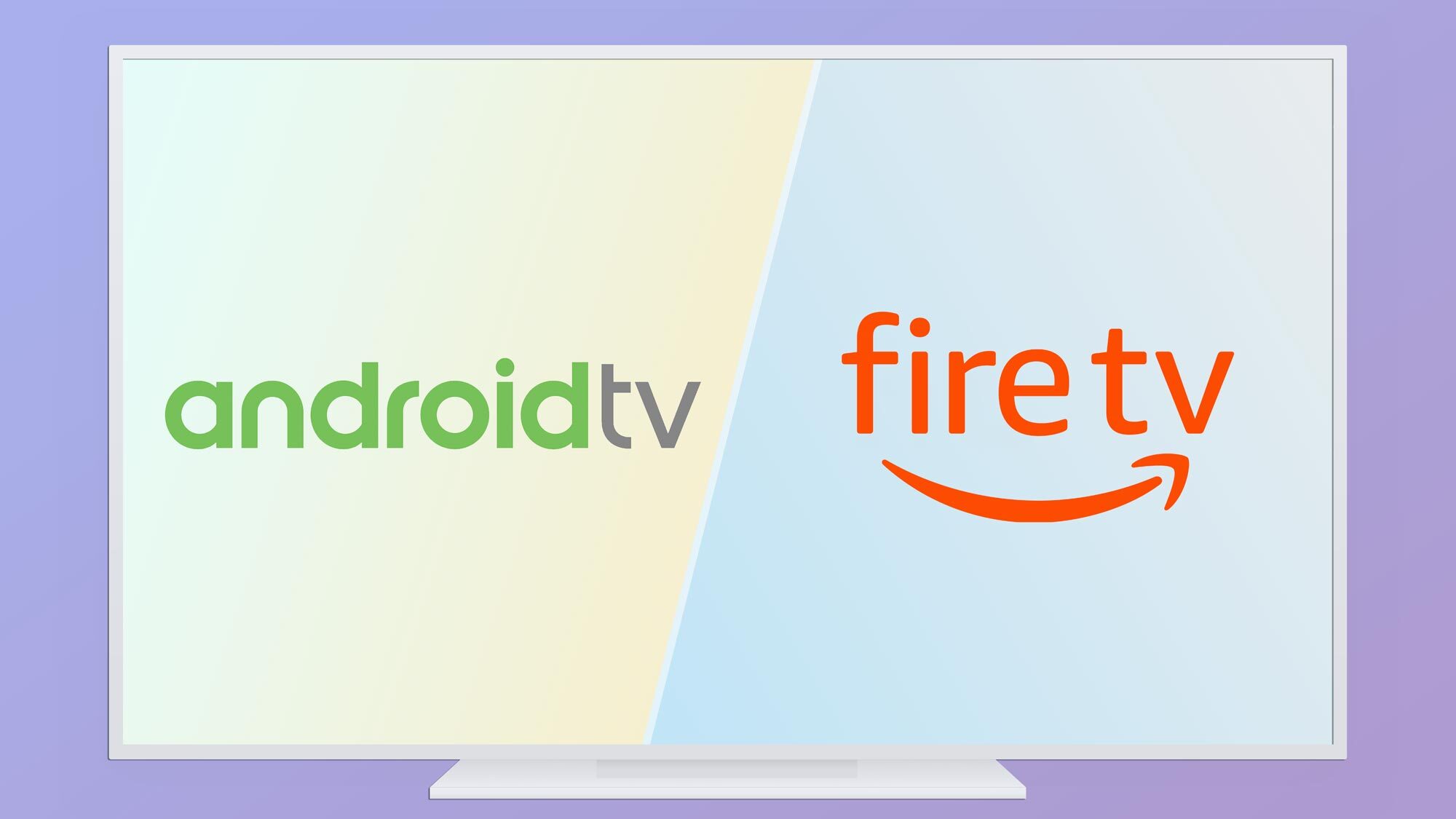
It’s hard to find a TV today that isn’t smart — meaning it‘s connected to the Internet and able to run apps — and many of those are running Fire TV or Android TV. Having a smart TV means you don’t have to bother with a separate streaming stick, and you can get to your streaming services a bit easier. Choosing one with Android TV or Fire TV also means you get a top-tier virtual assistant, too.
Fire TV is available on TVs from Toshiba and Best Buy’s Insignia brand, including the Toshiba C350 Fire TV and Insignia F30 Fire TV Edition (2020 model). Android TV can be found on Sony, Hisense and TCL TVs, such as the Sony Bravia X800H and Hisense U8G Android TV (65U8G).
- Tested and reviewed: The best TVs we've seen
- Smart TVs: Everything you need to know
- Opinion: The new Amazon Omni has me rethinking Fire TVs
Both Android TV and Fire TV can do a lot; the right one for you will likely come down to which experience you like better — and which virtual assistant you already use.
Android TV vs. Fire TV: Navigation and interface
Android TV and Fire TV each feature horizontal layouts with long screens that you scroll down to browse. Until recently, the difference between the two was the number of menu options. But a big interface redesign for Fire TV has made the two very similar in approaches.
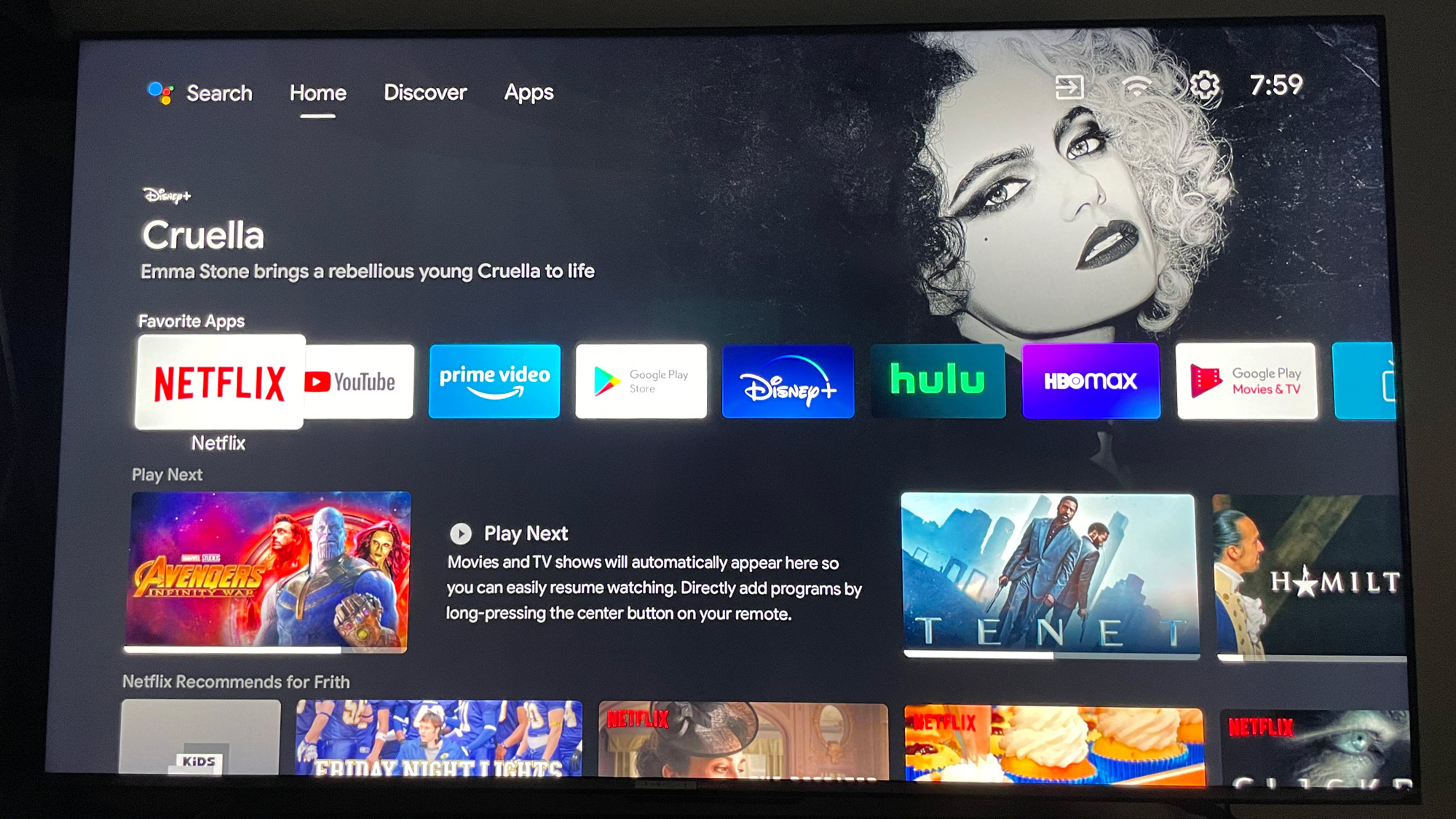
Android TV features a streamlined menu: Home, Discover and Apps. The Home screen has advertised content at the top, then gets to favorite apps (which you select). That’s followed by Play Next — shows and movies you’re in the middle of watching or the next episode of a series. What appears after that has a lot to do with the apps you download, and can include recommendations from Netflix and YouTube, as well as suggestions from the Google Play Store. At the bottom of the page is a link to customize the Home screen, where you can choose which app recommendations appear.
The Discover tab is focused more on suggesting content for you based on your apps and viewing choices. You can also tell Android TV what you like to get more personalized recommendations. You have to opt in to personalization to see recommendations on the Discover tab. The Apps tab shows you everything you’ve downloaded, and features a link to the Google Play Store to find more.
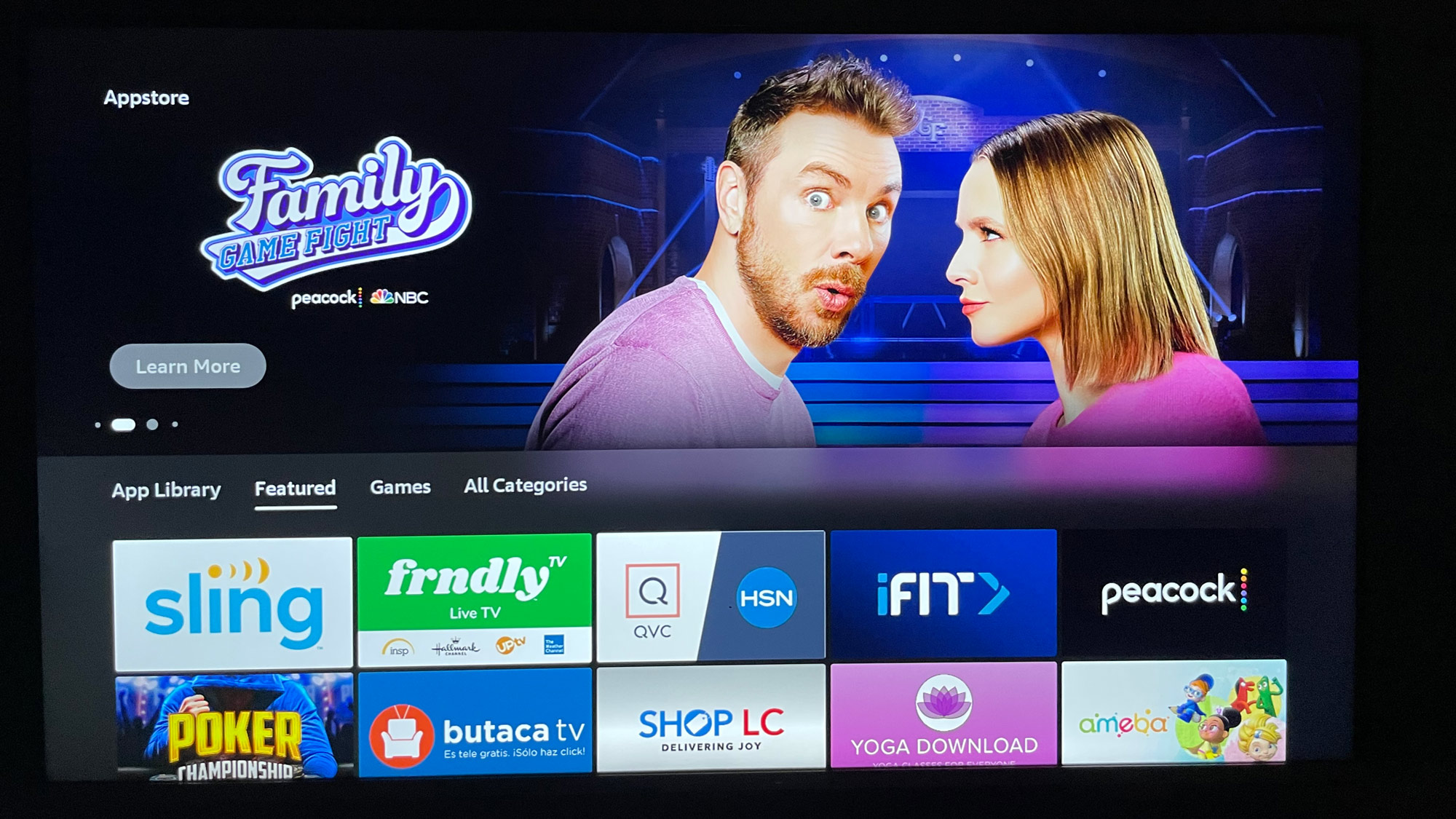
With the update, Fire TV also has three menu items: Home, Find and Live. Previously it had a long list of menu options: Home, Live, Your Videos, Free, Movies, TV Shows, Apps and Settings.
The Home screen starts with ads for shows and movies, some related to apps and services you have, some not. Below that you see the menu, and to the right of the menu are your apps. You can change which apps appear there by going to Your Apps and Channels. The Home screen also shows Recently Watched, a list of sponsored links and then Recently Used Apps. As you scroll down the screen, you’ll see Prime Video recommendations mixed in with content from other apps such as Netflix.
Find is where you browse for movies and shows. You can search, or delve into topics or categories. Live shows you what’s on now based on any live streaming apps you have and offers links to live streaming apps.
If Prime Video is your main service, Fire TV works very well. If you don’t subscribe to Prime or aren’t a fan of its options, the Amazon focus of Fire TV will likely get in your way.
Winner: Android TV. Both are very similar, but Android TV offers more flexibility.
Android TV vs. Fire TV: App selection
Both Android TV and Fire TV have just about every app you could want available. Recent omissions, such as Apple TV on Android TV and Peacock and HBOMax on Fire TV, have been addressed.
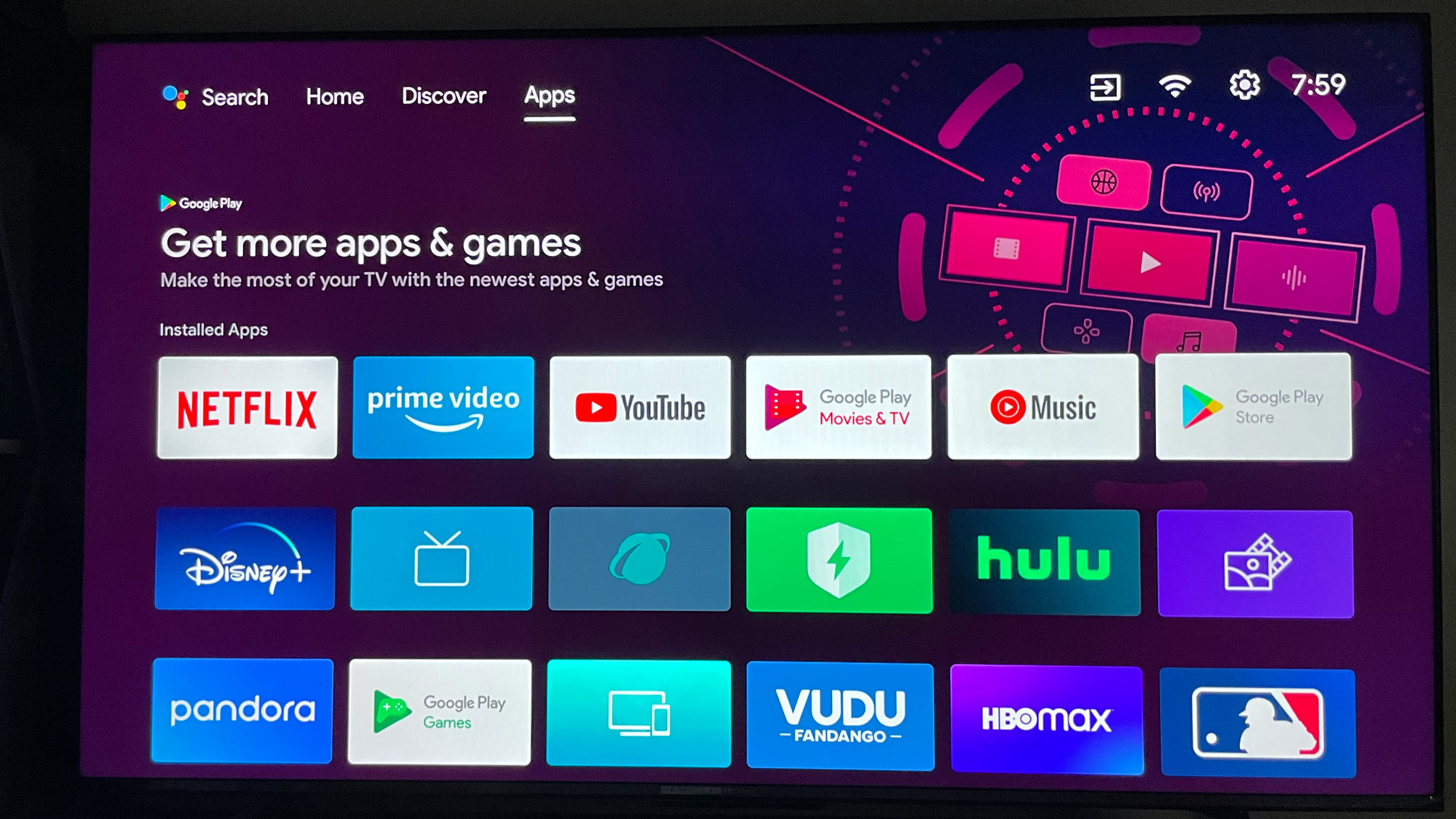
The Google Play Store shows featured and recommended apps and games on its main screen, and you can also search by voice or by typing. As you type, suggestions appear below to speed your discovery. But the fastest way to find an app is to use Google Assistant.
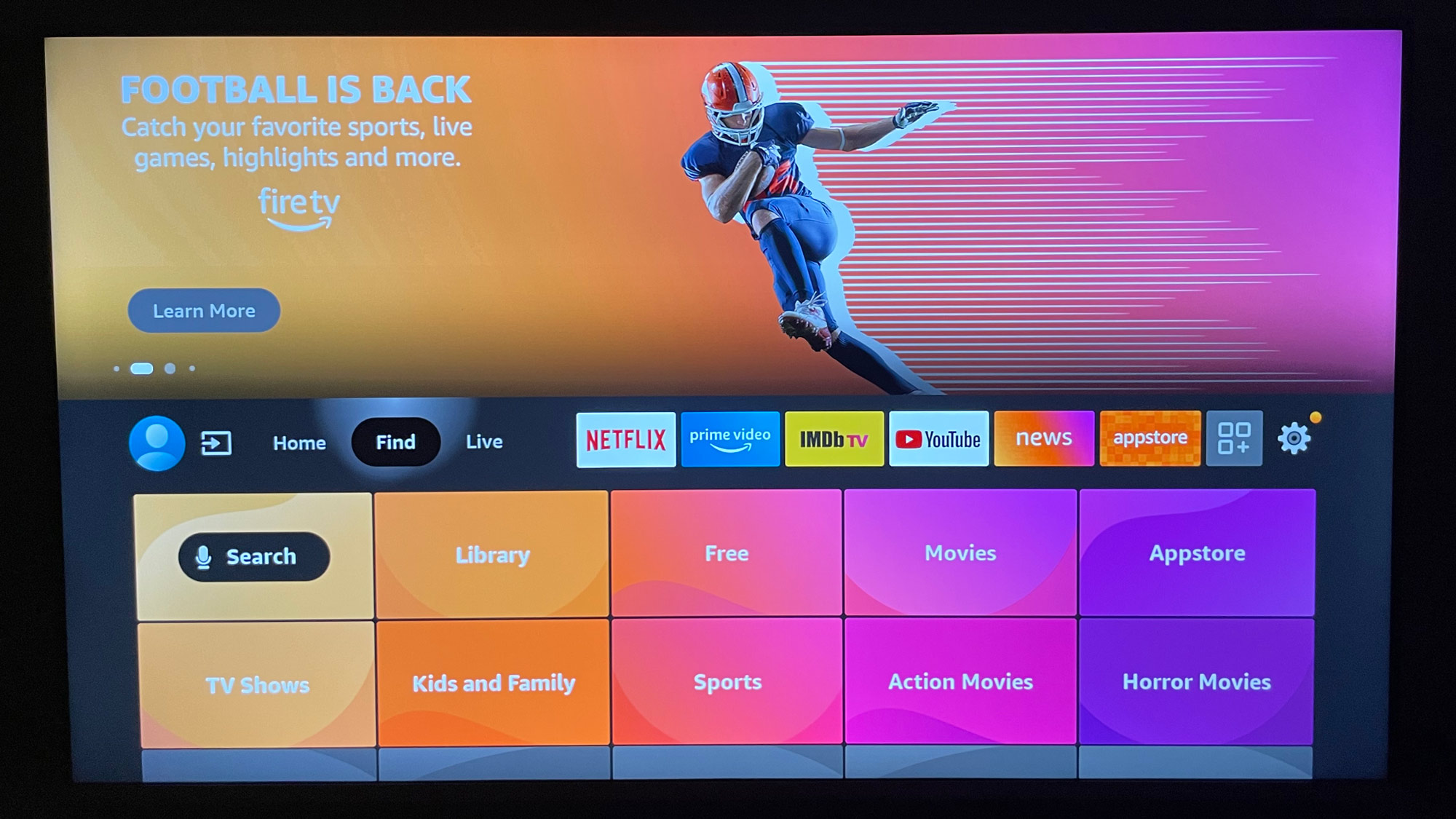
The Appstore channel on Fire TV is where you get new apps and games. The App Library shows you the apps you’ve downloaded, while Featured offered suggested downloads. If you don’t see what you’re looking for there, the All Categories tab offers 27 themes to dig into. Unfortunately, there’s no easy search option that’s focused on apps. But you can always ask Alexa — as with Android TV, voice search is your fastest way if you already know what you’re looking for.
Winner: Tie
Android TV vs. Fire TV: Search
With so much content available, search becomes a key part of a smart TV. You want to be able to find shows and movies, as well as apps.
As mentioned, using voice search is often the easiest way to find things. Both smart OSes also let you type your query and suggest terms as you type.
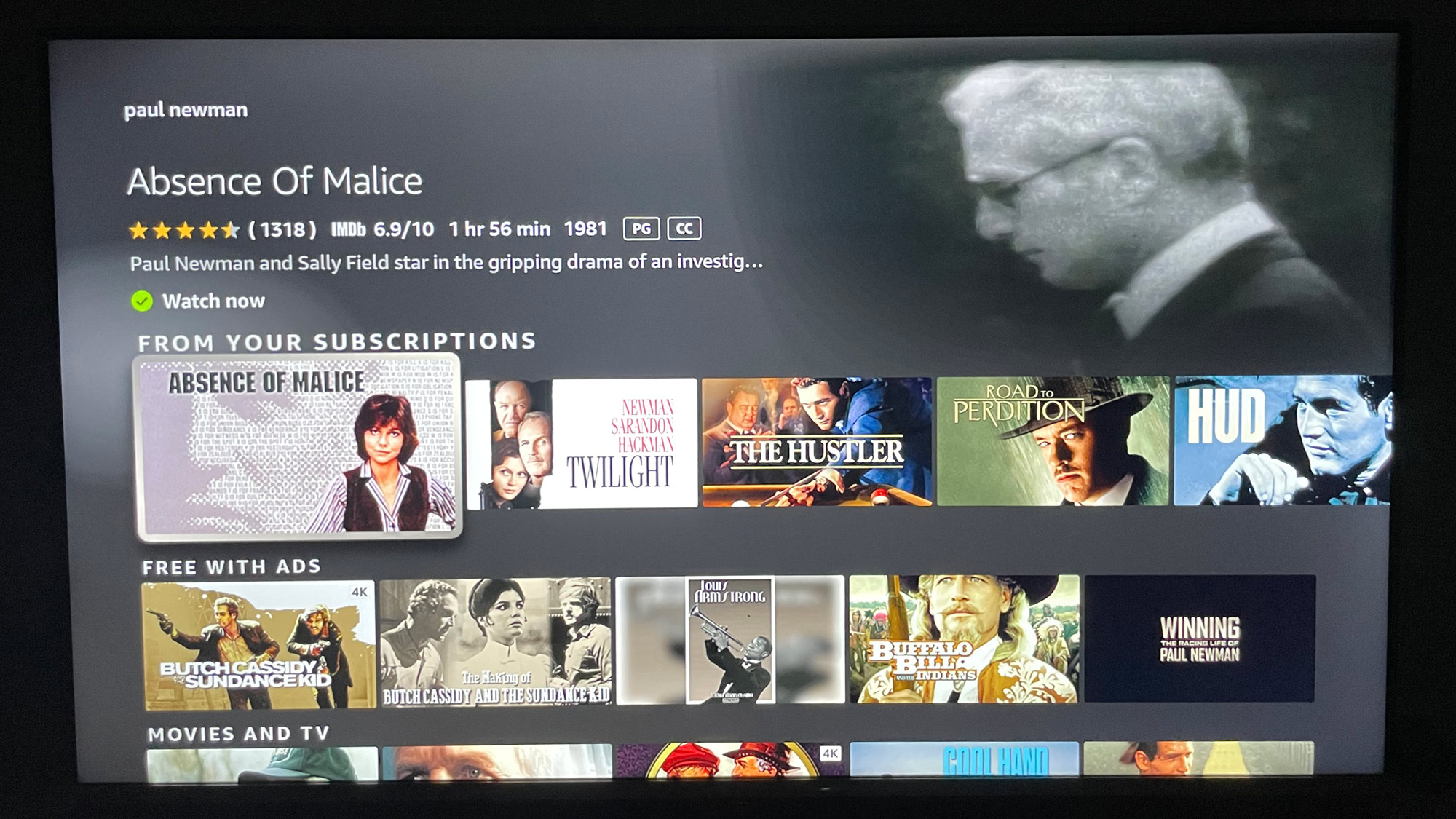
On Fire TV, a search for “Paul Newman” brought up options from services I subscribe to, and showed other movies and TV shows he’s featured in. It also suggested apps such as YouTube where I could also search for the name. When I searched for The Color of Money, the TV showed a page with the movie, similar results, but also apps that had nothing to do with the movie.
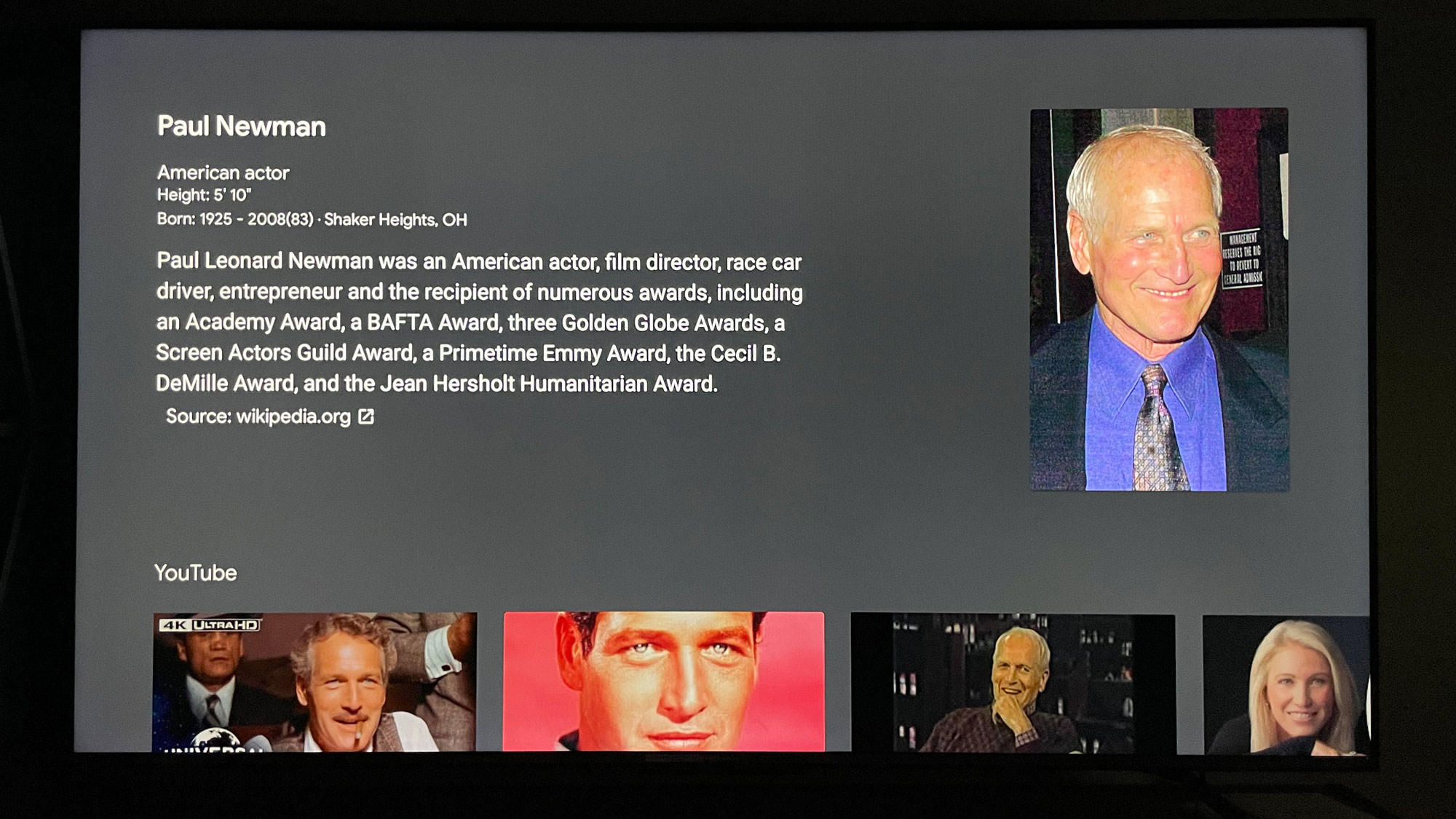
On Android TV, a search for “Paul Newman” produced a page with some info from Wikipedia, YouTube videos that feature the actor and movies and shows that he’s in. The screen also features related searches. When I did the The Color of Money search, I got a summary of the film, including IMDB and Rotten Tomatoes scores. I also could see which of my services I could stream from, along with the cost. The Android TV result was much more useful.
Winner: Android TV
Android TV vs. Fire TV: Voice recognition
This is a battle between Goliaths — Alexa on Fire TV and Google Assistant on Android TV — and you probably already have a voice assistant preference. Both work very well within a TV, though the processor your TV includes plays a role in how fast voice recognition works, and on some models the virtual assistant is hands free while on others you have to push a button on the remote.
In the smart TV setting, voice recognition is becoming more important than ever. You can get your TV to do all sorts of things with just your voice. Both Android TV and Fire TV can adjust the volume, launch apps and perform searches based on what you ask. You can also use the virtual assistants to tell you the weather, play music and more — anything you can do with an Alexa speaker or Google Assistant speaker.
Winner: Tie
Android TV vs. Fire TV: Privacy and advertising
Let’s face it: both Amazon and Google want to know as much about you as possible and push its services. Fire TV and Android TV are just another platform for them to do so. But you can take some control of the information each gathers.
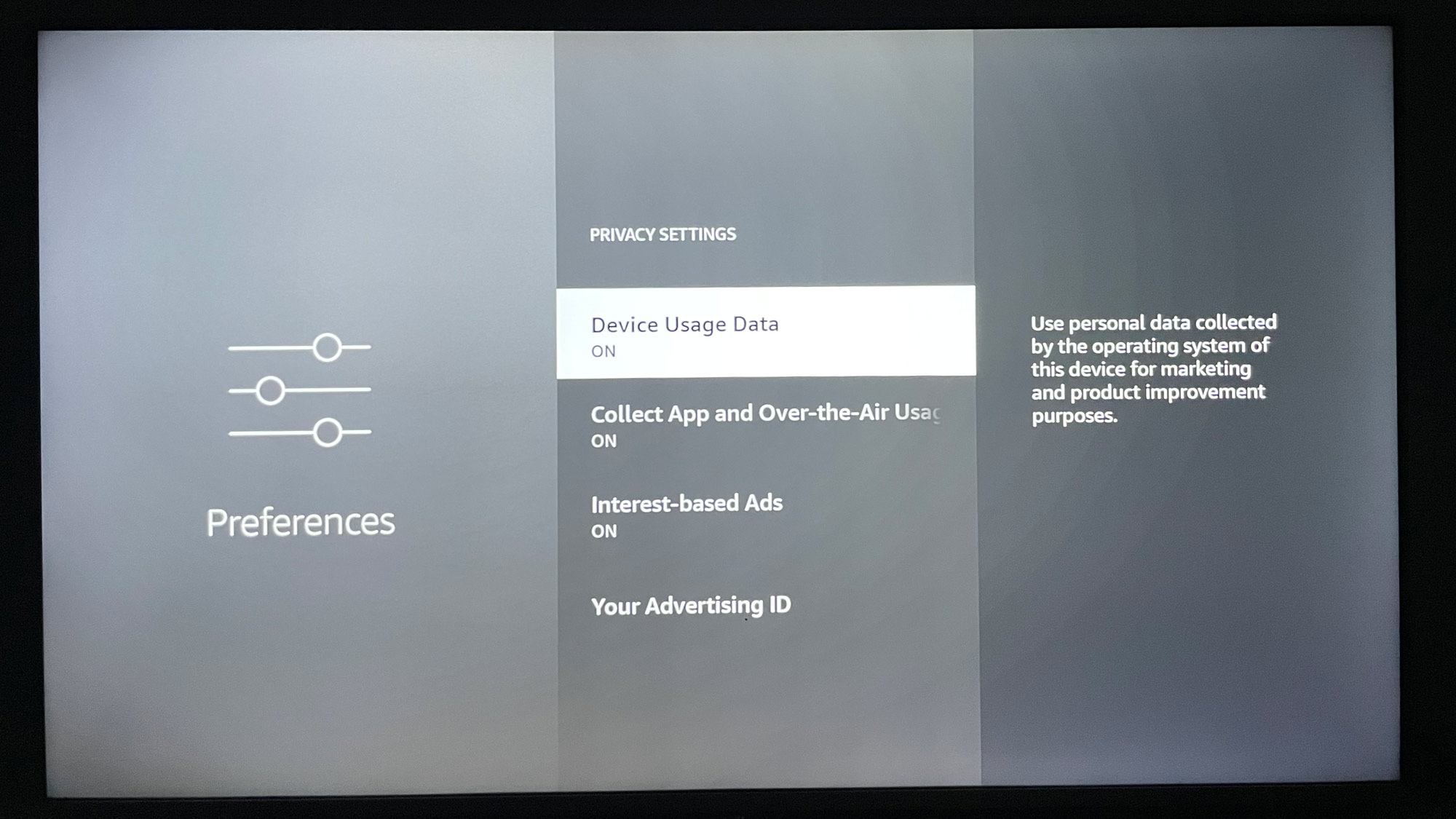
Fire TV opts you in to tracking by default, but you can turn some off. Go to Settings > Preferences > Privacy. There you can switch off collecting of personal data for marketing, collection of over-the-air TV content and use of interest-based ads. You can also reset your advertising ID.
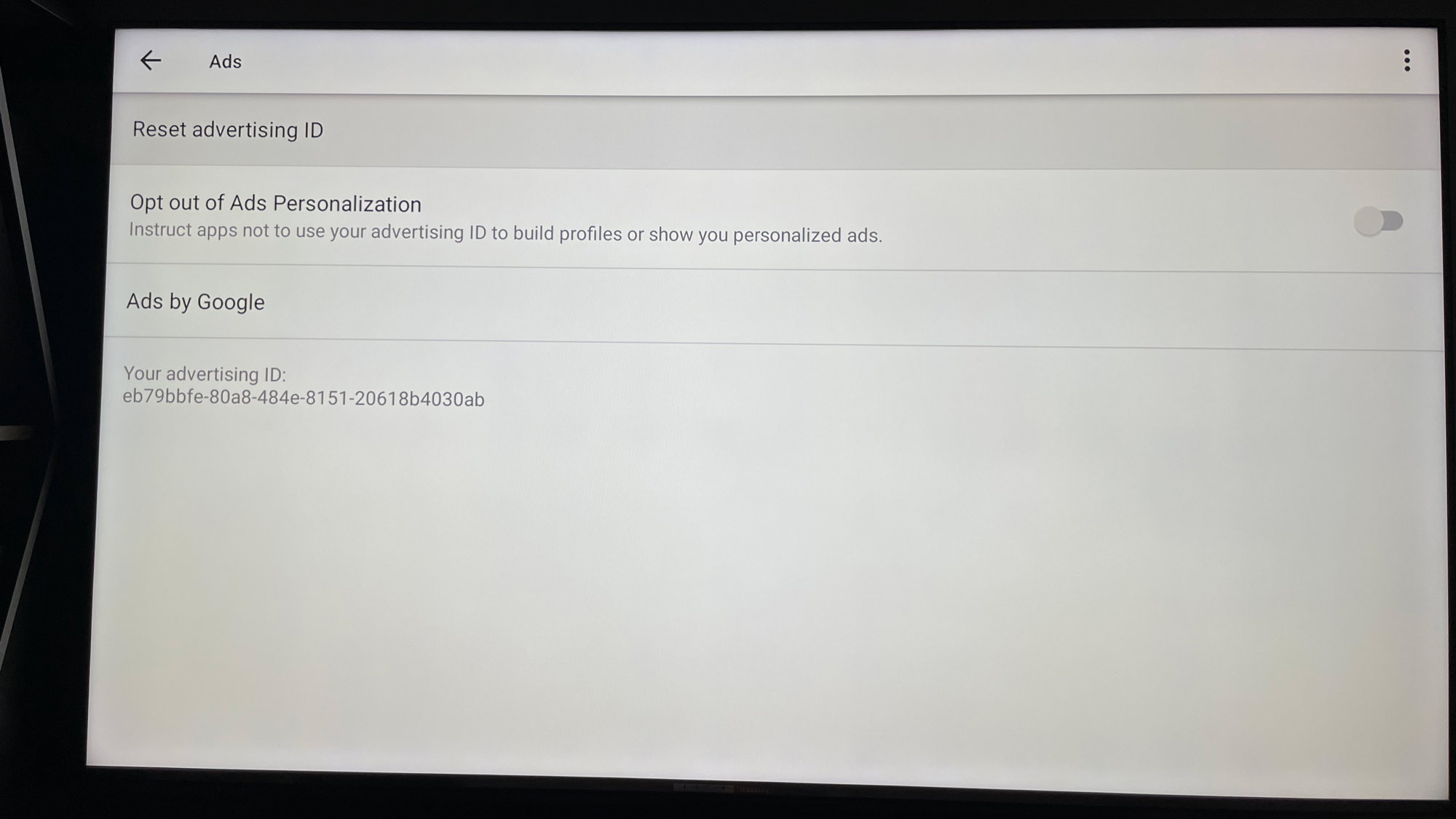
Android TV makes it pretty hard to find how to adjust your privacy settings. Go to Settings > Device Preferences > About > Legal Information > Ads and you’ll find a way to turn off ad personalization. Android TV also makes you opt in to the Discover tab to receive personalized movie and show recommendations — which is good, but once I opted in I couldn’t find a way to opt back out.
Winner: Fire TV, but neither puts your privacy first.
Android TV vs. Fire TV: Smart home
With the virtual assistants baked into Android TV and Fire TV, your TV can become the hub of your smart home. You can turn on your lights, close the garage door and much more while you’re watching your favorite show.
The best one for you is the one that works with your existing smart home devices. If you favor Google Assistant, Android TV will work seamlessly with what you have. Same thing for Alexa.
Winner: Tie
Android TV vs. Fire TV: Which one wins?
You can’t lose with either of these smart TV systems. Both have all the apps you want and great virtual assistants. The new update for Fire TV makes the interface almost the same as Android TV. Fire TV generally requires less tinkering than Android TV to get the most out of it, but Android TV can deliver a better overall experience if you’re looking for robust smart TV features.
Strictly speaking, Android TV wins by a nose, thanks largely to its superior search and navigation, though the two smart TV platforms are closely matched on every front.
| Header Cell - Column 0 | Android TV | Fire TV |
|---|---|---|
| Navigation | ✓ | Row 0 - Cell 2 |
| App selection | ✓ | ✓ |
| Search | ✓ | Row 2 - Cell 2 |
| Voice recognition | ✓ | ✓ |
| Privacy and advertising | Row 4 - Cell 1 | ✓ |
| Smart home | ✓ | ✓ |
| Overall | 5 | 4 |
In reality, the right one for you is likely the one that matches the virtual assistant you prefer: Alexa or Google Assistant. The smart TV platform is just another medium for those tools. However, if you don’t have Amazon Prime or any Alexa devices, Android TV will be a better choice.
Sign up to get the BEST of Tom's Guide direct to your inbox.
Get instant access to breaking news, the hottest reviews, great deals and helpful tips.

Michael Gowan is a freelance technology journalist covering soundbars, TVs, and wireless speakers of all kinds of shapes and sizes for Tom’s Guide. He has written hundreds of product reviews, focusing on sound quality and value to help shoppers make informed buying decisions. Micheal has written about music and consumer technology for more than 25 years. His work has appeared in publications including CNN, Wired, Men’s Journal, PC World and Macworld. When Michael’s not reviewing speakers, he’s probably listening to one anyway.
-
zigili Silly conclusion.Reply
How do you say the User Interface from Android TV is better when in 2021 it has a 1080p resolution on all their devices versus the 4K Fire OS interface!?
How do you say app selection is a tie when Android TV is the last OS to get every app: Apple TV+ for example. Fire has Hulu 4K for years, Android TV got it a couple of months ago on a few selected devices. Outside os the USA it gets even more ridiculous, Android TV unlike Fire OS, Apple and Roku doesn't have an app for the second most watched channel in the UK (all4).
What about speed, what about the benchmarks showing that Fire OS with 1GB RAM is as good performance wise as Android TV with 2GB RAM? Due to the heavy, cumbersome, bug ridden OS that Android tv is and always was.
Bad comparison, really bad. You can compara Apple, Roku and Fire OS but Android TV? Android TV is far behind and yea I have them all including a Nvidia Shield Pro 2019.
